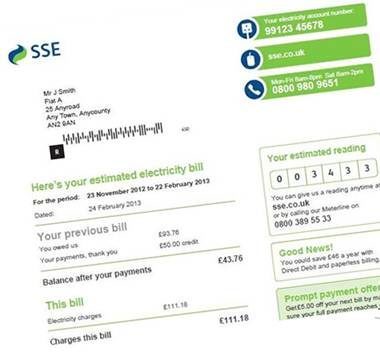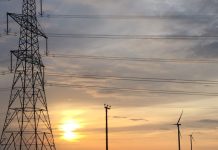Britain’s energy regulator confirmed market expectations this morning by increasing the dual fuel price cap with effect from January to £1,928 per year for a notional average domestic customer.
Ofgem director Jonathan Brearley attributed the 5% rise – equivalent to £95 over a year – to continuing fluctuations on electricity wholesale markets, resulting almost entirely from Russian dictator Putin’s assault on Ukraine in February 2022.
The price cap, updated every quarter, sets a notional maximum that can be charged to customers for energy bills.
Brearley insisted that suppliers should take pains to support billpayers facing difficulties.
“This is a difficult time for many people“, he said, “and any increase in bills will be worrying“.
The Ofgem boss drew comfort from what he called a return of choice to home energy tariffs.
“Customers could benefit from shopping around with a range of tariffs now available offering the security of a fixed rate or a more flexible deal that tracks below the price cap“, he said.
The regulator has acted to raise standards of customer service and worked with suppliers and consumer groups to encourage industry to support those struggling with their bills, including the Winter 2023 Voluntary Debt Commitment recently announced by Energy UK and Citizens Advice.
The regulator has also published today a statutory consultation on levelling standing charges for prepayment meter and direct debit customers so customers pay the same daily charge.
Previously, customers on prepayment have been charged more than those who pay by direct debit to cover the additional costs and resources required by suppliers to provide their services.
In October 2022, the government introduced measures to temporarily remove this ‘PPM premium’ via the Energy Price Guarantee, which remains in place until April 2024.
Anti-poverty advisors Citizens Advice echoed Ofgem’s call for suppliers to do more to support struggling account-holders.
Gillian Cooper, the charity’s director of energy, said: “Prices going up during the coldest part of the year will make life harder for millions of people who are already struggling.
“We’re already helping record numbers with energy debt and we’re seeing more people than ever who can’t afford to top up their prepayment meter“.
She criticised chancellor Jeremy Hunt’s neglect of fuel poverty in yesterday’s Autumn Statement “The government missed the opportunity to announce extra support for households who desperately need it this winter. The lack of action means far too many households will now be forced to choose between heating and eating this winter“.
“We urgently need the government to honour its commitment to look at options for providing targeted financial support with energy bills from April 2024.”
At analysts Cornwall Insight, Dr Craig Lowrey noted today’s rise is a reverse on optimism twelve months ago that stability might be returning to world markets for power.
“With little in the way of direct energy bill support coming out of the Autumn Statement”, Lowrey noted, “consumers are likely to look at lowering usage to counteract high bills, which remain well above their historic averages.
“As we move into 2024, it’s not just the persistently high unit costs that will be a worry; the looming rise in electricity standing charges from April adds another layer to the equation“.
Standing charges for both gas and electricity already account for 16% of average household bills, the Cornwall Insight expert observed.
“Fundamentally the solution extends beyond tweaking energy bills,“ Lowrey went on. “We need a long-term strategy that reduces our dependence on imports of energy, particularly gas. By investing in domestic renewable energy sources, we can start to break free from the international market fluctuations and stabilise our energy prices for homes and businesses alike.”
Sam Richards, founder of pro-growth campaign group Britain Remade, echoed the Cornwall analyst: “As winter sets in, the prospect of the Energy Price Cap increasing by £94 will be worrying news for millions of households up and down the country who are still facing eye-wateringly high energy bills.
“The only way to rapidly bring bills down is to turbocharge the roll-out of clean secure sources of domestic energy.
“The government should start by making sure new onshore wind farms in England can actually get built – unlocking one of the cheapest sources of energy available“.




